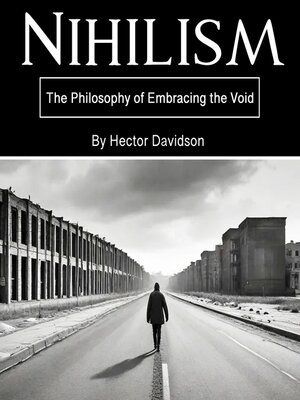
Sign up to save your library
With an OverDrive account, you can save your favorite libraries for at-a-glance information about availability. Find out more about OverDrive accounts.
Find this title in Libby, the library reading app by OverDrive.



Search for a digital library with this title
Title found at these libraries:
| Library Name | Distance |
|---|---|
| Loading... |
Nihilism is often misunderstood as mere pessimism or despair, yet it is far more complex than a simple rejection of hope. At its core, nihilism is the philosophical stance that life lacks inherent meaning, purpose, or intrinsic value. This perspective challenges the foundations of morality, knowledge, and existence itself, questioning whether anything possesses objective significance. While nihilism can evoke feelings of emptiness and disillusionment, it can also serve as a liberating force, stripping away illusions and compelling individuals to forge their own meaning.
The term "nihilism" originates from the Latin word "nihil," meaning "nothing." Though traces of nihilistic thought can be found in ancient skepticism, it was in the 19th century that the philosophy gained prominence. Friedrich Nietzsche famously declared the "death of God," arguing that traditional religious and moral values had lost their authority. He warned that without these guiding structures, society risked falling into despair and meaninglessness. However, Nietzsche did not advocate surrendering to nihilism but instead sought a way to overcome it through the creation of new values. Russian nihilists of the same era took a different approach, rejecting societal norms and advocating for radical change, often through extreme means. Their interpretation of nihilism fueled revolutionary movements, demonstrating its potential to inspire both destruction and transformation.
Nihilism manifests in various forms, from existential and moral nihilism to epistemological and political nihilism. Existential nihilism is perhaps the most well-known, asserting that life has no ultimate purpose or inherent meaning. This idea has been explored by thinkers such as Jean-Paul Sartre and Albert Camus, who wrestled with the absurdity of existence.







